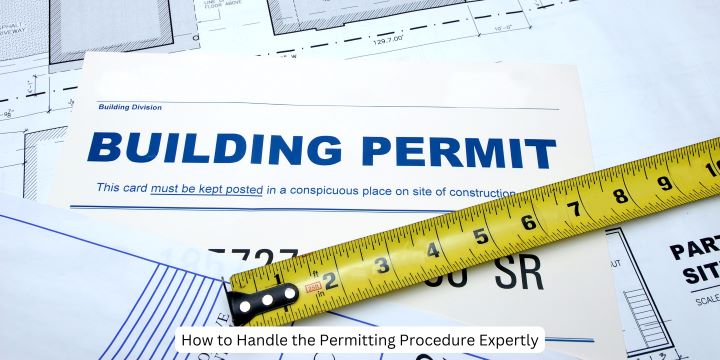Key Takeaways:
- The permitting process is crucial for any construction project.
- Understanding the different types of permits can save time and money.
- Proper documentation and knowledgeable professionals are essential.
- Keeping informed about local regulations can prevent delays and fines.
Understanding the Basics of the Permitting Process
Understanding the permitting process is vital before starting any major construction project. Whether for a new build or a renovation, permits ensure that your project complies with local building codes, zoning laws, and safety standards. Having the proper permits can avoid costly fines and delays. In metropolitan areas like Denver, it’s essential to familiarize yourself with the Denver building permits process to avoid potential pitfalls.
The permitting process safeguards public health and safety by ensuring that all construction meets established standards. Thus, obtaining the proper permits keeps you compliant and helps maintain the integrity of your project. With a solid understanding of the process, you can mitigate risks, plan more accurately, and confidently move forward.
Types of Permits You May Need
Depending on the nature of the project, various permits may be required. These include building, electrical, plumbing, and HVAC permits. For example, a building permit is generally required for structural changes, while an electrical license is necessary for new wiring or significant electrical upgrades.
Building Permits
Building permits are mandatory for most construction projects that involve structural changes. These permits ensure that construction techniques and materials conform to local building codes. Whether adding a room, altering the roof, or significantly modifying your property, securing a building permit is the first step. Building permits also often require detailed architectural plans and structural assessments to ensure the project will withstand various stressors, from weather to usage.
Electrical Permits
Electrical work requires its own set of permits. It includes installing new electrical systems, upgrading existing wiring, and adding new fixtures. Proper permits help to guarantee that the electrical work is safe and up to code. It is especially crucial because electrical failures can lead to fires or serious injuries. Thus, ensuring you’re compliant reduces risks and increases the safety of your living space or commercial property.
Plumbing Permits
Plumbing permits cover installing and modifying pipes, fixtures, and systems involving water supply, drainage, and sewage. A plumbing permit is necessary to install a new kitchen or bathroom. It guarantees that your plumbing work complies with the code and guards against problems like water pollution, leaks, and other plumbing crises that might harm your home and cause expensive repairs.
HVAC Permits
HVAC permits are required for installing or altering heating, ventilation, and air conditioning systems. They ensure energy efficiency and safety standards are met. Given the complexities involved in HVAC systems, these permits ensure that all installations are done correctly, improving the system’s efficiency and extending its lifespan. Furthermore, they provide all systems to operate safely, preventing issues such as carbon monoxide leaks or inefficient heating and cooling.
Steps to Obtain a Permit
- Research Local Requirements: Start by researching the specific requirements of your local jurisdiction. Websites like city and county government pages often have this information. Knowing whether your city has unique regulations can save you time and help you prepare all necessary documentation in advance.
- Prepare Your Documents: Compile all necessary documentation, such as architectural designs, site plans, and evidence of lease or ownership. Detailed documentation increases the likelihood that your application will be approved swiftly. Ensure every aspect of your project is represented in your documentation to avoid delays.
- Send in Your Application: Complete and send the application with the necessary paperwork. Some municipalities allow online submissions. Double-check all the information before submission to ensure your application is returned for minor corrections, which can slow down the process.
- Pay Fees: Have money ready to cover any costs related to permit application submission. These fees can vary, so budget accordingly. Understanding these costs upfront helps you manage your finances and keeps your project running smoothly without unexpected financial interruptions.
- Inspection: Once your application is approved, an inspection may be required at different project stages to ensure compliance. These inspections ensure the work complies with all safety regulations and authorized plans. Regularly scheduled inspections can help catch issues early before they become costly.
Common Challenges and How to Overcome Them
Getting a permit can be complicated. Common challenges include incomplete paperwork, overlooked requirements, and misunderstandings of local regulations. Using resources like professional consultants can streamline the process. Checking reliable sources such as the Building Advisor can provide valuable insights and tips. Being proactive in addressing these challenges ensures that your project remains on schedule and avoids unnecessary setbacks, giving you peace of mind.
Hiring a Professional
Hiring a well-versed professional in the local permitting process can benefit larger projects. These experts may save time and lower the possibility of costly mistakes by swiftly navigating the requirements and making sure all paperwork is submitted appropriately. They often have established relationships with local officials and can anticipate challenges that may arise, offering solutions before they become significant issues. By entrusting this crucial part of the process to an expert, you can confidently focus on other aspects of your project.
Maintaining Compliance
Once you have obtained the necessary permits, adhering to the approved plans and specifications is crucial. Any changes or modifications to the project after the license has been issued will likely require a revision and re-approval. Maintaining adherence ensures you remain in compliance and avoids potential issues down the line. It is also advisable to keep detailed records of all permits, inspections, and communications related to your project. This documentation can be precious if any disputes or questions arise later on.
The Importance of Staying Updated
Building codes and permit requirements can change, so it’s essential to stay updated on local or state updates. Regularly important government websites or subscribing to relevant industry news feeds can help you stay up-to-date with the latest information, ensuring your project remains compliant and on track. Staying current with changes enables you to complete your project and prepare you for future undertakings, ensuring you always work within the latest legal frameworks.
In conclusion, understanding and navigating the permitting process can be a complex but necessary part of any construction or renovation project. Thorough research, diligent preparation, and seeking professional assistance when required can help ensure your project is completed smoothly and successfully. By following these guidelines, you comply with local regulations and enhance your construction endeavors’ safety, efficiency, and success.







